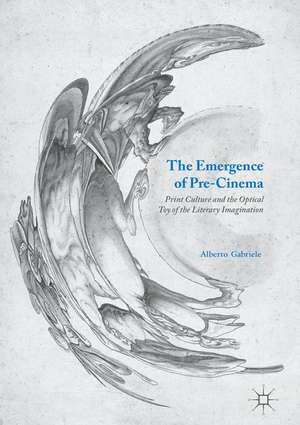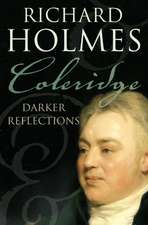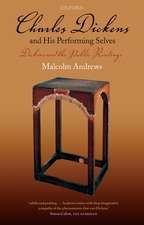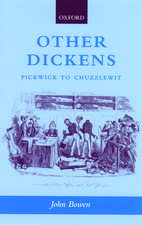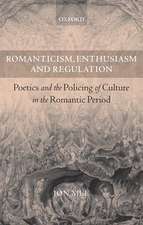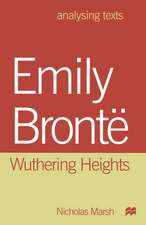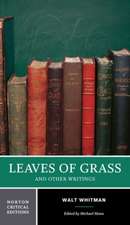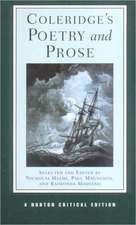The Emergence of Pre-Cinema: Print Culture and the Optical Toy of the Literary Imagination
Autor Alberto Gabrieleen Limba Engleză Hardback – 22 dec 2016
| Toate formatele și edițiile | Preț | Express |
|---|---|---|
| Paperback (1) | 382.75 lei 6-8 săpt. | |
| Palgrave Macmillan US – 9 dec 2018 | 382.75 lei 6-8 săpt. | |
| Hardback (1) | 474.82 lei 6-8 săpt. | |
| Palgrave Macmillan US – 22 dec 2016 | 474.82 lei 6-8 săpt. |
Preț: 474.82 lei
Preț vechi: 558.61 lei
-15% Nou
Puncte Express: 712
Preț estimativ în valută:
90.87€ • 98.67$ • 76.33£
90.87€ • 98.67$ • 76.33£
Carte tipărită la comandă
Livrare economică 22 aprilie-06 mai
Preluare comenzi: 021 569.72.76
Specificații
ISBN-13: 9781137597700
ISBN-10: 1137597704
Pagini: 256
Ilustrații: IX, 229 p. 16 illus., 12 illus. in color.
Dimensiuni: 148 x 210 x 20 mm
Greutate: 0.52 kg
Ediția:1st ed. 2016
Editura: Palgrave Macmillan US
Colecția Palgrave Macmillan
Locul publicării:New York, United States
ISBN-10: 1137597704
Pagini: 256
Ilustrații: IX, 229 p. 16 illus., 12 illus. in color.
Dimensiuni: 148 x 210 x 20 mm
Greutate: 0.52 kg
Ediția:1st ed. 2016
Editura: Palgrave Macmillan US
Colecția Palgrave Macmillan
Locul publicării:New York, United States
Cuprins
Chapter 1 Introduction: The Emergence of Precinema.- Chapter 2 From Analogia Entis to the Threshold of Self-Reflexivity in the Poetry of Dante, Donne and Shakespeare.- Chapter 3 The Modern(ist) Reader: Friedrich Schlegel’s Fragments, the Emergence of Modern Philology and the Montage Effect of Industrial Modernity.- Chapter 4 A Map to the Panorama: the Self-reflexive Construction of Sight and the Flickering Shadows of the Phantasmagoria Effect in Ann Radcliffe’s Mysteries of Udolpho.- Chapter 5 Visions of the City of London: Mechanical Eye and Poetic Transcendence in Wordsworth’s Prelude—Book 7.- Notes.- Bibliography.
Recenzii
“Gabriele’s book is an articulate, erudite, and readable contribution to Romantic-era scholarship at the intersection of literary and visual studies in at least two obvious ways: he persuasively demonstrates the long history of the visual in Western Culture, undermining the myth of Romantic rupture, and, having done so—through careful reading of three essential authors of the ‘self-reflexive turn’ from the discourse-network of 1800—contributes greatly to our understanding of how this splitting of signifier from referent emerges with new forms of seeing.” (William S. Davis, European Romantic Review, Vol. 30 (1), 2019)
Notă biografică
Alberto Gabriele is the author of Reading Popular Culture in Victorian Print: Belgravia and Sensationalism and the forthcoming Sensationalism and the Genealogy of Modernity: A Global Nineteenth-Century Perspective. He is working on a project on the global circulation of print culture in the 1860s and has been, most recently, a Macgeorge fellow at the University of Melbourne, Australia.
Textul de pe ultima copertă
The book investigates the dispersed emergence of the new visual regime associated with nineteenth-century pre-cinematic spectacles in the literary imagination of the previous centuries. Its comparative angle ranges from the Medieval and Baroque period to the visual and stylistic experimentations of the Romantic age, in the prose of Anne Radcliffe, the experiments of Friederich Schlegel, and in Wordsworth’s Prelude. The book examines the cultural traces of the transformation of perception and representation in art, architecture, literature, and print culture, providing an indispensable background to any discussion of nineteenth-century culture at large and its striving for a figurative model of realism. Understanding the origins of nineteenth-century mimesis through an unacknowledged genealogy of visual practices helps also to redefine novel theory and points to the centrality of the new definition of ‘historicism’ irradiating from Jena Romanticism for the structuring of modern cultural studies.
Caracteristici
Presents print culture and the literary imagination as an unacknowledged pre-cinematic optical toy Offers a comprehensive and expansive discussion that stretches from Dante to William Wordsworth Proposes a new understanding of the relationship between literature and modernity.
